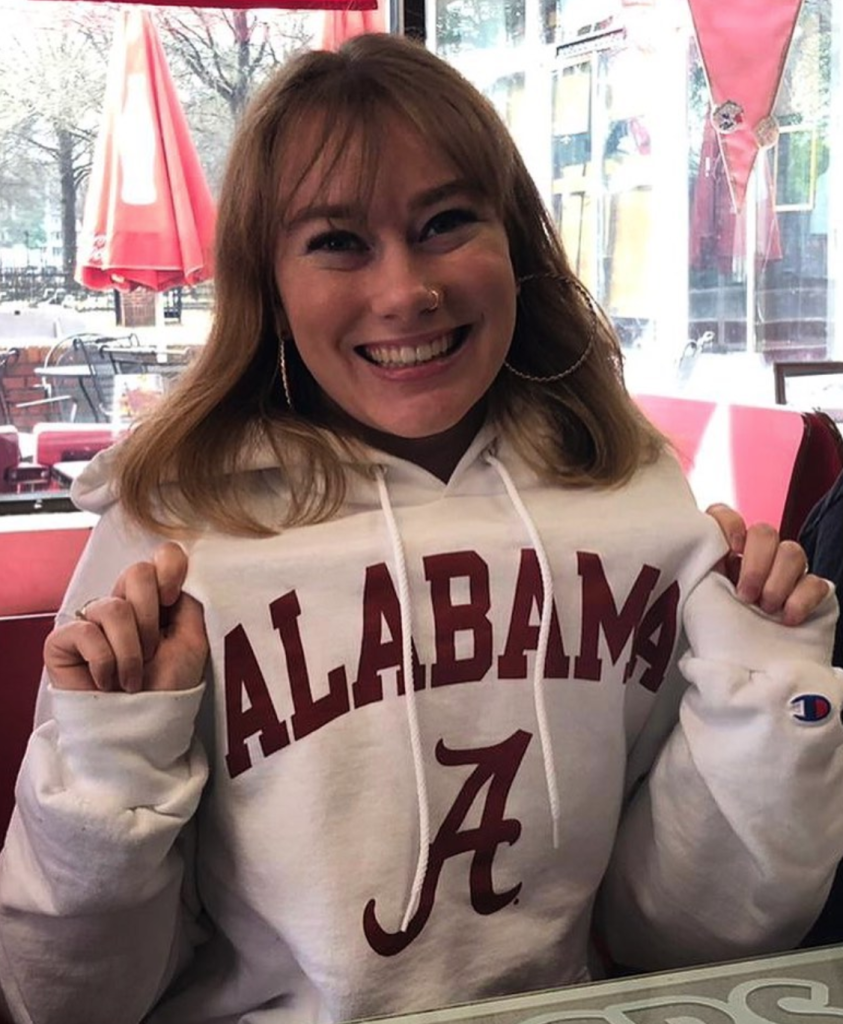
Sonya Harwood-Johnson, originally from Grimes, Iowa, received her B.S. in Anthropology and Religious Studies, with a minor in Environmental Studies, from Iowa State University in 2020. She began work last month as a full-time International Programming Assistant at UA’s International Student and Scholars Services office; she will complete her M.A. in the study of religion at UA, as a part-time student, later in 2022.
When deciding which university I wanted to apply to for my Master’s degree, Alabama’s Religion in Culture program really stuck out to me. Coming from a background in Cultural Anthropology, I always had a difficult time whenever I felt like religion was being studied apart from the people who participate in it. I had no idea which direction I wanted to go with a Master’s in Religion, but UA seemed like the right place to guide me. It was exactly this “Religion in Culture” concept, with the guidance and prompting from UA’s faculty, that led me to internships that really helped me apply the skills I was learning that could be utilized outside of traditional academia.
In my second semester in the graduate program, I was connected with the International Student and Scholar Services office at UA where I was given the opportunity to participate in a one semester internship. During this internship, I was able to design and carry out an ethnographic research project which helped to fine-tune my interviewing and data collecting skills. What surprised me, however, were the unexpected skills I ended up gaining from this opportunity. I was able to experience the intricacies of office culture for the first time, as well as see how each role and position within an international student support office helps students in unique ways. It was fascinating to me to see how my skills developed in religious studies could be applied in a variety of different contexts.
The fall of my second year brought another internship opportunity, this time with the English Language Institute, which is also a part of the Capstone International Center on campus. This office works with individuals who are not UA students with the goal of improving their English abilities, either to continue on with studies at UA or simply return home with a valuable skill. While I still worked with students from around the world, this experience was entirely different from the office work I had done previously. However, I was able to utilize the same interpersonal, communication, organization, and decision-making skills that I had been honing throughout my time in the humanities.
Internships are critical, especially within the humanities. They allow students to experience the variety of ways that the skills we develop studying our selected topics can be applied broadly in a myriad of contexts. Internships allow students like me to begin asking bigger questions. In my case, these questions were “How can I use what I know about evangelicalism and the Bible Belt to help students from Pakistan feel more at home at UA?” or “How does understanding culture as a constructed concept allow me to design programs that are able to foster dialogue between domestic and international students on campus?”. By seeing the ways in which our skills can be utilized outside of academia, we are more prepared to enter an increasingly complex job market.
Because of these internships and the experiences I had, I had the honor of receiving a full time job offer with the first office with which I had interned, and started as an International Program Assistant in December 2021. If I had not taken an internship in an area I initially knew very little about, I would never have thought that I would enjoy working in an office setting. I would highly recommend that every student participate in at least one internship during their academic career. Passions are often found in unexpected places, and, who knows, it might turn into a career.
Learn more about internship opportunities (for credit) in REL’s M.A. degree.